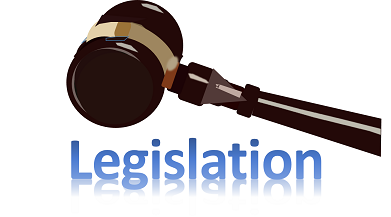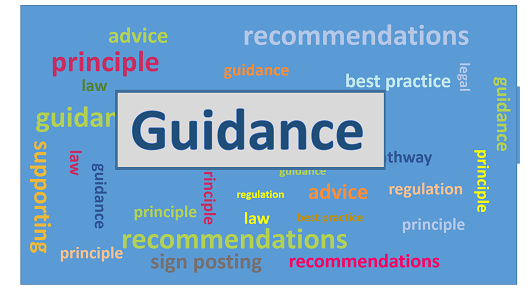Safeguarding News April 2024
Dear Colleague
Spring has finally 'sprung' and brings with it some much needed sunshine and warmer weather. We welcome you, our subscribers to the latest SAFEcic Safeguarding Newsletter, highlighting newsworthy articles that made the headlines during April 2024.
News Highlights
In Online Safety we highlight the National Crime Agency’s urgent warning about a dramatic increase in financially motivated sexual extortion, plus we outline the new law that will mean offenders who create sexually explicit ‘deepfakes’ will face prosecution.
Elsewhere, this month’s highlights include updates to the Victims and Prisoners Bill and Prevent Duty training and guidance for practitioners.
In the Regulators section there are important updates from the General Medical Council, the Information Commissioner's Office, the Royal College of Paediatrics and Child Health, in addition to news stories from the Charity Commission and the Care Quality Commission
Finally, we round off last month's news round-up with the government’s announcement to make it easier for police to apply for stalking protection orders meaning more victims will be protected earlier.
Safeguarding Supervision for Educators
Educational establishments will benefit significantly from SAFEcic's best practice Safeguarding Supervision, which is aimed at educators and designed to enhance outcomes for children. Supervision fosters a culture of mutual support, teamwork and continuous improvement, encouraging reflection and confidential discussion of sensitive issues.
Supervision typically takes 1.5 hours and pricing includes a follow up. Supervision can be delivered live online or face to face (plus additional travel/accommodation expenses) for indviduals and groups of up to 5 people, at a suitable time within your schedule. It is delivered by a trained safeguarding supervisor, with extensive experience of safeguarding in educational settings. Find out more or book a Supervision Session
Safeguarding Rapid Review Service
SAFEcic's Rapid Review Service is a proven, cost-effective and efficient way for busy managers, directors and trustees across many sectors (including Ofsted, CQC and Charity Commission regulated organisations) to gain external, expert insight and support to help their organisation attain the highest level of safeguarding culture, policy, procedures and practice.
A Rapid Review takes just two hours of management time via Zoom or Teams and the price includes preparation of a high-level assessment report and an action plan to efficiently and cost effectively address any identified issues. Find out more or book a Rapid Review
Training Schedule
Our latest training schedule is listed below and feel free to share this email with your colleagues and they too can join our newsletter database.
To sign up simply click here.
SAFEcic Blended Learning Training Calendar
Leading on Child and Adult Safeguarding
Safeguarding Training, Leading on Child and Adult. Online course plus Zoom
Wed 26 June 2024
10:30 - 12:00 GMT
Safeguarding Training, Leading on Child and Adult. Online course plus Zoom
Thu 9 July 2024
10:30 - 12:00 GMT
Safeguarding Training, Leading on Child and Adult. Online course plus Zoom
Tue 6 Aug 2024
10:30 - 12:00 GMT
Safeguarding Training, Leading on Child and Adult. Online course plus Zoom
Wed 11 Sept 2024
10:30 - 12:00 GMT
Safeguarding Training, Leading on Child and Adult. Online course plus Zoom
Thu 3 Oct 2024
10:30 - 12:00 GMT
Safeguarding Training, Leading on Child and Adult. Online course plus Zoom
Tue 5 Nov 2024
10:30 - 12:00 GMT
Safeguarding Training, Leading on Child and Adult. Online course plus Zoom
Wed 4 Dec 2024
10:30 - 12:00 GMT
Standard Child and Adult Safeguarding
Safeguarding Training, Standard Child and Adult. Online Course plus Zoom
Tue 2 July 2024
10:30 - 12:00 GMT
Safeguarding Training, Standard Child and Adult. Online Course plus Zoom
Thu 19 Sept 2024
10:30 - 12:00 GMT
Safeguarding Training, Standard Child and Adult. Online Course plus Zoom
Tue 26 Nov 2024
10:30 - 12:00 GMT
Safeguarding: Trustees’ legal responsibilities
Safeguarding: Trustees' legal responsibilities. Online Course plus Zoom
Wed 5 June 2024
10:00 - 11:30 GMT
Safeguarding: Trustees' legal responsibilities. Online Course plus Zoom
Wed 25 Sept 2024
10:00 - 11:30 GMT
Safeguarding: Trustees' legal responsibilities. Online Course plus Zoom
Tue 15 Oct 2024
10:00 - 11:30 GMT
Safeguarding: Trustees' legal responsibilities. Online Course plus Zoom
Tue 3 Dec 2024
10:00 - 11:30 GMT
Safer Recruitment Training. Online course plus 2 Hr Live Online training
Tue 4 June 2024
10:00 - 12:00 GMT
Safer Recruitment Training. Online course plus 2 Hr Live Online training
Thu 11 July 2024
10:00 - 12:00 GMT
Safer Recruitment Training. Online course plus 2 Hr Live Online training
Tue 24 Sept 2024
10:00 - 12:00 GMT
Safer Recruitment Training. Online course plus 2 Hr Live Online training
Wed 6 Nov 2024
10:00 - 12:00 GMT
Managing and Leading on International Safeguarding
Managing and Leading on International Safeguarding Training. Online course plus Zoom
Tue 10 Sept 2024
10:00 - 11:30 GMT
SAFEcic's free hub resources by setting are available through the SAFEcic.co.uk main menu. Alternately you can bookmark the links below:
Education | Dental | Charities | GP & Primary Medical Services | Fath Groups | Entertainment & Leisure | Working Overseas |
Legislation

New legislation will provide extra protections for victims' counselling notes during criminal investigations.
New legislation to provide extra protections for victims’ counselling notes during criminal investigations received government backing today.
The amendment to the landmark Victims and Prisoners Bill, tabled by Baroness Bertin, will require the police to be satisfied that counselling information is likely to add substantial value to their investigation before they request a victim’s records.
It will also provide further protections in the new statutory Code of Practice, which will state clearly that police must start with an assumption that a request for counselling notes is not necessary and proportionate to their investigation.
The move will give greater confidence to victims – particularly those of sexual assault - in seeking the therapy they need to help move forward with their lives, without fear that information revealed in absolute trust will be used against them.
Further amendments to the Victims and Prisoners Bill to strengthen victim support include:
- a crackdown on the misuse of confidentiality clauses to stop victims of crime accessing support services
- a new statutory duty holding the police and other criminal justice agencies to account which means they must not only inform victims of their rights under the Victims’ Code – but deliver services in accordance with it
- a bolstered role for Victims’ Commissioner to ensure support available to all victims
- families can make impact statements at mental health tribunals
Through the Victims and Prisoners Bill, the principles of the Victims’ Code will be placed on a statutory footing, and police, prosecutors and other frontline staff will have a duty to ensure victims know the services and support that they are qualified to receive - including the entitlement to be referred to a support service, receive updates on their case and to make a victim personal statement.
Alongside new legislation, the government is also continuing to bolster support services - quadrupling victims’ funding by 2024/25, up from £41 million in 2009/10, and using ringfenced funding to increase the number of Independent Sexual Violence and Domestic Abuse Advisors by 300 to around 1,000 – a 43% increase by 2024/5.
Alongside new legislative clauses in the Police, Crime, Sentencing and Courts Act 2022 relating to Victim Information Requests, the government will be publishing a Code of Practice to accompany new duties, which will add clarity on the expectations on policing and promote consistency in practice.
The code will set out a best practice approach for police making requests for victim information, including giving information to the victim about what is being requested, and how the material will be used. Police will be required to have due regard for this code when making requests. The Code will be consulted on before it is published.
The amendment will be subject to agreement by both the House of Lords and the House of Commons.
Good Practice Guidance

1 The Prevent Duty in higher education (HE): training and guidance for practitioners updated 2 April 2024
provides training materials and guidance for:
- those with a responsibility for ensuring compliance with the Prevent Duty in higher education (HE)
- staff of HE institutions
- any other members of HE institutions
This update had added a link to 'Explaining Prevent to staff and students in higher education'.
2 Information sharing advice for safeguarding practitioners Guidance updated
The change made:
Updated 'Information sharing: advice for practitioners providing safeguarding services' including more clarity on the use of consent and the legal frameworks needed to support the sharing of information.
This advice is for:
- Individuals who are directly involved in safeguarding children, including frontline practitioners, managers and senior leaders
- Individuals and organisations that work with children, parents, carers and families, in sectors such as social care, education, health, justice and voluntary
- It may also be helpful for practitioners working with vulnerable adults and adults who could pose a risk to children.
This advice outlines the importance of sharing information about children, young people and their families in order to safeguard children. It should be read alongside the statutory guidance Working Together to Safeguard children 2023.
Inquiry and Review Reports

1 The Child Safeguarding Review Panel recommends reading an article about the different functions of safeguarding reviews.
The Child Safeguarding Review Panel recommend those involved in safeguarding practice read a fascinating research article about the different (and sometimes competing) functions of safeguarding reviews. It will, they are sure, prompt good thinking and reflection on their approaches to such reviews.
"The multiple and competing functions of local reviews of serious child abuse cases in England" by Jonathan Dickens, Laura Cook, Jeanette Cossar, Cynthia Okpokriri, Julie Taylor and Joanna Garstang has been published by Critical Social Policy, an academic journal available on Sage Open Access.
Dickens et al highlight the various influences and factors that can shape safeguarding reviews.
They suggest that, whilst the stated purpose of local reviews is to improve practice, there are other “covert functions:
- to dissipate public outrage,
- deflect attention from underlying causes,
- and distort understandings of the work by making it seem straightforward".
They encourage that the article is read in full, it provides everyone with some good, healthy challenge and should prompt reflection on how they approach safeguarding reviews.
2 Caldey Island historical child sex abuse review announced
The inquiry will be led by Jan Pickles, former assistant police and crime commissioner at South Wales Police.
It was announced by Father Jan Rossey, superior at Caldey Island Abbey.
Kevin O'Connell has campaigned since 2019 for an inquiry into allegations he and others were abused on Caldey, a small island off the coast of Tenby, Pembrokeshire.
He said the announcement was a "start", and that it had come about due to his years of campaigning and the work of the Caldey Island Survivors' Campaign, which he founded.
The former Deputy Children's Commissioner for Wales, Maria Battle, is the safeguarding lead for the inquiry.
Ms Battle said it was now in the process of "awaiting outcomes".
3 Dame Christine Gilbert to lead independent review into Ofsted’s response to Ruth Perry tragedy
His Majesty’s Chief Inspector, Sir Martyn Oliver, tannounced that he has appointed Dame Christine Gilbert to lead an independent learning review into Ofsted’s response to the tragic death of Ruth Perry.
The independent review was among the measures detailed in Ofsted’s response to the Coroner’s Prevention of Future Deaths report, published in January. The review will consider the actions Ofsted took in response to hearing about the death of Ruth Perry.
Ofsted’s communications, its engagement with stakeholders and information-sharing within Ofsted regarding the incident, the support Ofsted offered internally to staff, including inspectors, and how its approach was informed by clearly defined policies
The review will not examine the inspection of Caversham Primary School in November 2022, nor the judgements it made.
Ofsted has published the full terms and conditions for the review.
Research Reports, Consultations, Campaigns and Studies

1 Safeguarding Children in Schools and Colleges: A call for Evidence
Keeping children safe in education (KCSIE) is designed to help schools and colleges identify concerns early, develop the right relationships with other professionals, and support them to put appropriate processes and procedures in place. Ministers have decided that KCSIE 2024 will undergo technical changes only before final publication in September 2024, with a view to providing a more substantively updated document, encompassing wider changes, to be delivered in 2025
The Department for Education are launching this 12-week call for evidence now, to take the views of schools, colleges, and other professionals on safeguarding practice development and direction, in advance of Keeping children safe in education 2025 (KCSIE). The reflections, experience, and suggestions in this call for evidence will help to inform future iterations of KCSIE and shape long-term policies to support staff to keep children safe in education.
The Survey closes June 20 2024
2 Should the law change to make it easier for organisations to apologise?
The law could be updated to make it easier for organisations to offer sincere apologies to those who have been wronged following the launch of a government consultation
The Compensation Act, which became law in 2006, made it easier for public institutions, private companies and their employees to apologise, without admitting liability in civil proceedings.
Section 2 of the Compensation Act 2006 states:
“An apology, an offer of treatment or other redress, shall not of itself amount to an admission of negligence or breach of statutory duty. It aims to encourage those defending claims not to be deterred from offering apologies by a perception that doing so would constitute an admission of liability”.
Yet almost 20 years on, there is little evidence this has encouraged businesses to use apologies more as form of reparation – leaving many victims without proper closure and a sense they are unable to move on with their lives.
Often, organisations and individuals remain reluctant to apologise because of concerns it may be interpreted by the aggrieved party, or insurers, as an admission of fault. Changing the law to make this clearer could remove barriers - perceived or real - to apologising, while broadening the scope of the law would allow people to express regret and offer more earnest apologies.
Ministers are also considering how best to refine current laws following a recommendation from the Independent Inquiry into Child Sexual Abuse (IICSA) that apologies could and should be offered by employers for the actions of current or former employees – known as vicarious liability. This would encourage the likes of schools, care facilities or hospitals to offer apologies for abuse carried out by an individual at these institutions.
The IICSA heard that in many historic child sexual abuse cases, an apology by an institution was seen as equally – or more – important than compensation by victims.
As part of the IICSA investigations, they spoke to survivors from the privately-run Bryn Alyn home in Wrexham, where children were abused for decades up to the 1990s, as well as Forde Park school in Devon.
Comments from those surveyed included:
Witness A23: “an apology…would have been priceless to me, and worth more than any amount of money”
Witness A24: “I now realise that an apology or acceptance for what I had been through is worth more than any amount of compensation.”
Witness A6: “I was not at all satisfied with the civil process or the outcome of the case. There was a payment of damages; however, there was no apology and my abusers were not held to account.”
For more information on the findings of the independent inquiry visit: C.11: Apologies, explanations and assurances - IICSA Independent Inquiry into Child Sexual Abuse
The consultation follows a Private Members’ Bill introduced by John Howell MP to allow an apology to be given that is genuinely and sincerely meant without creating a legal liability. This bill did not complete its passage through Parliament before the end of the 2019-21 session, but the Lord Chancellor confirmed the Government would consult on the issue when Parliamentary time allowed.
The independent inquiry also found that in the clinical negligence sphere especially, sincere, unreserved, and meaningful apologies can avoid litigation altogether – sparing victims the further protracted trauma of a lengthy court battle.
The consultation proposals do not force those defending a claim to offer an apology. It also reserves the rights of either party to pursue further legal action even when an apology has or has not been offered.
The consultation will close on 3 June 2024.
Regulators

General Medical Council (GMC)
GMC decision makers given more flexibility in cases where there is a low risk to public protection.
Case examiners and other fitness to practise decision makers at the General Medical Council (GMC) now have more discretion to close complaints following updates to its guidance.
The changes to the medical regulator’s Guidance for decision makers when violence and dishonesty may represent a lower risk to public protection, are part of its commitment to assure fairness in its processes through more efficient and proportionate investigations.
Decision makers will now be able to weigh the full circumstances of a concern earlier in the fitness to practise process to assess the overall risk to public protection including to public confidence in the profession– meaning some concerns may not need to be investigated or referred to a tribunal.
Concerns that fall under the guidance are those that are minor in nature and did not impact patient care. Allegations of violence and dishonesty which raise a risk to public protection, including where there is a history of repeated behaviour, will continue to be investigated.
The GMC engaged with patient and doctor representatives, including medical defence organisations, who provided feedback on the changes and whether it would be proportionate to investigate certain concerns.
Examples of concerns that, under the updated guidance and if there were no aggravating factors, would no longer need to be investigated include:
- A doctor giving false details to a market research company, in order qualify for free products.
- A doctor pushing a colleague out the way following a heated argument.
The Information Commissioners Office (ICO)
The ICO sets out priorities to protect children's privacy online
The Information Commissioner’s Office (ICO) is calling on social media and video-sharing platforms to improve their data protection practices so children are safer when using their services. This comes as the regulator sets out its 2024-2025 priorities for protecting children's personal information online.
Since the introduction of its Children’s code of practice in 2021, the ICO has been working with online services including websites, apps and games to provide better privacy protections for children, ensuring their personal information is used appropriately within the digital world. There has been significant progress and many organisations have started to assess and mitigate the potential privacy risks to children on their platforms.
The new Children’s code strategy builds on the progress to date and sets out the priority areas social media and video-sharing platforms need to improve on in the coming year, as well as how the ICO will continue to enforce the law and drive conformance with the code by industry.
Royal College of Paediatrics and Child Health (RCPCH)
1 The RCPCH responds to publication of the final report from the Cass Review
An Independent Review of Gender Identity Services for Children and Young People was commissioned by NHS England and NHS Improvement in Autumn 2020 to make recommendations about the services provided by the NHS to children and young people who are questioning their gender identity or experiencing gender incongruence or dysphoria.
The final report focuses on the following areas:
The approach taken by Dr Cass and the review team to draw together the final recommendations
The history of services for children and young people with gender dysphoria, including changing demographics and referral rate data over time to provide context to the report
Understanding the current cohort of children and young people who are seeking NHS support for gender dysphoria, their needs, and any key drivers to the increase in referrals
Clinical approaches and clinical management of gender dysphoria and gender related distress, including the purpose, benefits, and outcomes of clinical interventions in the pathway. This includes the use of hormones and how to support more complex presentations
The service delivery model, workforce requirements, pathways of care into the specialist service, further development of the evidence base and how to embed continuous clinical improvement and research into the new service.
RCPCH will now take the time to review the recommendations made by Dr Cass in full, consider our role to play and identify the needs of our members in order to support the provision of high quality, safe, timely and effective care, with the following principles in mind:
Children and young people with gender incongruence or dysphoria must receive the same standards of clinical care, assessment and treatment as every other child or young person accessing health services. As with any other healthcare service, children should be given the opportunity to express what matters to them, and that this is taken into account by healthcare practitioners. This includes the use of pronouns and gender identifiers in line with the child’s wishes, as set out in the NICE Guideline on Babies, children and young people’s experiences of care [1.2.1]. Read more on what LGBTQ+ young people have told us about this.
2 Royal College of Paediatrics and Child Health published on this website Wednesday 17 April 2024
The Executive Summary states:
“In England and Northern Ireland, children are the only group of people not fully protected in law from physical assault. This is because of the ‘reasonable punishment defence’, set out in the Children Act 2004 and the Law Reform (Miscellaneous Provisions) (Northern Ireland Order) 2006, which means that if a parent physically assaults their child, they may be able to argue (either as a means of avoiding prosecution or, ultimately, in court) that this was ‘reasonable punishment’. The evidence, as set out in Section 2 of this report, shows that the use of physical punishment has negative consequences for children’s physical and mental health, social, behavioural, and emotional well-being, parental engagement and school engagement. There is also evidence that physical punishment escalates in severity, putting children who are physically punished at higher risk of experiencing significant harm through serious physical assault. Scotland and Wales have paved the way for the United Kingdom to become a more equal society by removing the reasonable punishment defence from their legislation. This report sets out the evidence basis for England and Northern Ireland to follow suit and do the same by examining the evidence against the use of physical punishment with regard to children’s health, well-being and healthcare practice. Political leaders in England and Northern Ireland now have an opportunity to do the same and to tangibly demonstrate their commitment to champion children’s rights, improve outcomes for children and protect them from harm and to promote and protect the health, wellbeing, and success of the current and future generations of people living here in the UK. The recommendations from this report demonstrate to UK Government policymakers both the practicalities of removing this defence from law, and also the appropriate next steps to secure a reduction in the harmful practice of physical punishment."
1 Regulator’s inquiry into Jamia Hanfia Ghosia Mosque and Princess Street Resource Centre finds former trustees failed to hold trustee elections
The regulator found there was serious misconduct and / or mismanagement in the charity’s administration and management by its former trustees, but found no evidence to support concerns about unauthorised payments to these former trustees.
Jamia Hanfia Ghosia Mosque and Princess Street Resource Centre, which operates under its working name Princess Street Mosque, was registered as a charity in 2000 and is based in Burton-On-Trent, Staffordshire.
The serious administration and management issues identified in the inquiry were that former trustees had not held valid elections, refused membership applications without good reason and did not have an accurate list of members. Nor did they act on written advice from the Commission to address these concerns.
The charity’s former trustees failed to hold elections for trustees in 2019, 2020 and 2021. The inquiry accepted that COVID-19 was an unavoidable obstacle to holding an AGM and election in 2020, but found the former trustees failed to regularise this once restrictions had been lifted.
Trustee elections were also obstructed by disputes about membership eligibility (only members could vote). The former trustees refused to accept membership applications from the community without a valid basis, so were not acting in the best interests of the charity.
The inquiry found that the former trustees failed to follow the Commission’s written advice given on several occasions between March 2020 and April 2022 on these matters. It also found they disrupted a process led by Popularis, an independent election specialist, to develop an accurate up-to-date membership list and hold valid elections.
The regulator opened its inquiry in April 2022, following these continued failures.
In May 2022, the inquiry issued a legal order to allow the charity to hold a free and fair election outside of an AGM. This took place in June 2022, and resulted in the valid election of new trustees.
In December 2022, April 2023 and April 2024 the Commission issued the new trustees with formal regulatory advice and guidance. The regulator expects the trustees to follow this guidance and act in the best interests of the charity.
The Commission is satisfied that the current trustees understand their duties as trustees and are capable of effectively managing the charity.
The inquiry found no evidence to support concerns raised with the Commission about unauthorised payments to former trustees.
The charity is in the process of changing its structure to a Charitable Incorporated Organisation (CIO), which will see it dissolve and transfer its assets to the new corporate
2 Sure Care (UK) Limited is ordered to pay £37,000 for failing to protect a resident from harm
Sure Care (UK) Limited, the provider of Derwent Lodge Nursing Home has been ordered to pay £37,000 at Liverpool & Knowsley Magistrates’ Court, following a prosecution brought by the Care Quality Commission (CQC) for failing to provide safe care and treatment, resulting in avoidable harm to a person.
The provider, pleaded guilty to an offence of failing to provide safe care and treatment to a gentleman with dementia, thereby exposing him to avoidable harm. They were fined £25,000 and also ordered to pay £10,000 costs to CQC which brought the prosecution, and a victim surcharge of £2,000.
An investigation by CQC found Sure Care (UK) Limited failed to ensure Derwent Lodge Nursing Home was fitted with HSE compliant window restrictors. The lack of window restrictors had been identified during a local authority quality improvement visit on 5 July 2019, and again in an audit of Mr Leighton’s room on 7 June 2021. The CQC investigation also found invoices for window restrictors dated 13 May 2021 and 20 May 2021 however these had not been fitted.
The case relates to Regulations 12, 22, and 23 of the Health and Social Care Act 2008 (Regulated Activities) Regulations 2014.
Online Safety

1 NCA issues urgent warning about ‘sextortion’
The National Crime Agency has issued an alert to hundreds of thousands of education professionals following a considerable increase in global cases of financially motivated sexual extortion – a type of online blackmail widely known as ‘sextortion’.
Sextortion involves people being forced into paying money or meeting another financial demand, after an offender has threatened to release nude or semi-nude photos of them. This could be a real photo taken by the victim, or a fake image created of them by the offender.
Specialists from the NCA’s CEOP Education team have produced the alert, which was issued to teachers across the UK on Monday 29 April.
It gives advice about spotting the signs of this type of abuse, supporting young people and encouraging them to seek help. It also includes guidance to be disseminated to parents and carers on how to talk to their child about sextortion, and how to support them if they become a victim – aiming to take away the stigma surrounding the topic and, in turn, power away from those who wish to harm them.
The unprecedented warning comes after the number of global sextortion cases reported to the US National Centre for Missing & Exploited Children (NCMEC) more than doubled in 2023, rising to 26,718 compared to 10,731 the year before.
All age groups and genders are being targeted, but a large proportion of cases have involved male victims aged between 14-18. Ninety-one per cent of victims in UK sextortion cases dealt with by the Internet Watch Foundation in 2023 were male.
These crimes can be perpetrated by organised crime groups based overseas, predominantly in some West African countries, but some are also known to be located in South East Asia.
They are motivated by making money quickly, rather than by sexual gratification, and in some cases have gone from initial contact to blackmailing their victim in under an hour.
Child victims have reported being contacted by an online account that they do not know but appears to be another child or young person. They may also be contacted by a hacked account of a child or young person they do know, but the communication feels unfamiliar; quickly engaged in sexually explicit communications, which may include the offender sharing an indecent image first; manipulated or pressured into taking nude or semi-nude photos or videos; told they have been hacked and the offender has access to their images, personal information and contacts (whether this is true or not); blackmailed into sending money or meeting another financial demand (such as purchasing a pre-paid gift card) after sharing an image or video, or the offender sharing hacked or digitally manipulated/AI-generated images of their victim and making the threat of sharing them wider.
Advice to parents and carers if their child says that someone is trying to trick, threaten or blackmail them online:
Don’t pay, do stop contact and block: you may be tempted to pay, but there is no guarantee that this will stop the threats. As the offender’s motive is to get money, once you have shown you can pay, they will likely ask for more and blackmail may continue. If you have paid, don’t panic but don’t pay anything more. Help your child to stop all communication with the offender and block them on any accounts that they have been contacted on.
Avoid deleting anything: try not to delete anything that could be used as evidence such as messages, images, telephone numbers, and bank account details.
Report to the police or: call 101 or 999 if there is an immediate risk of harm to your child. You can also use the CEOP Safety Centre to report any online blackmail attempts.
Adults can also support young people in getting their images removed using Childline and the Internet Watch Foundation’s Report Remove tool, the National Center for Missing and Exploited Children’s Take It Down tool, and reporting to the platform or app it has been shared on. Further information for parents and carers on how they can support their child can be found in the CEOP Education’s online blackmail article.
2 Government cracks down on ‘deepfakes’ creation
Offenders who create sexually explicit ‘deepfakes’ will face prosecution under a new law announced by the government
Under the new offence, those who create these horrific images without consent are facing a criminal record and an unlimited fine. If the image is then shared more widely offenders could be sent to jail.
The new law will mean that if someone creates a sexually explicit deepfake, even if they have no intent to share it but purely want to cause alarm, humiliation or distress to the victim, they will be committing a criminal offence.
It will also strengthen existing offences, as if a person both creates this kind of image and then shares it, the CPS could charge them with two offences, potentially leading to their sentence being increased.
This offence will apply to images of adults. This is because the law already covers this behaviour where the image is of a child (under the age of 18).
Deepfake images have become more prevalent in recent years, with images being viewed millions of times a month across the world. The fake images and videos are made to look hyper-realistic with the victim usually unaware and unable to give their consent to being sexualised in such a way.
As part of the Criminal Justice Bill, which continues its passage through Parliament, the government is also creating a range of new criminal offences to punish those who take or record intimate images without consent - or install equipment to enable someone to do so.
These changes in the Criminal Justice Bill will build on the existing ‘upskirting’ offence, making it a criminal offence to intentionally take or record an intimate image or film without consent or a reasonable belief in consent take or record an intimate image or film without consent and with intent to cause alarm, distress or humiliation; or for the purpose of sexual gratification
The government has also re-classified violence against women and girls as a national threat, meaning the police must prioritise their response to it, just as they do with threats like terrorism - as well as ongoing work to tackle image-based abuse.
In March the first person was sentenced under the new Cyberflashing offence, which came into force in January via the Online Safety Act. Nicholas Hawkes, who was 39 at the time of sentencing, sent images of his genitals to a 15-year-old girl and a woman, and received a sentence of more than a year in prison.
In 2022, the Sexual Offences Act 2003 was amended to extend voyeurism offences to cover non-consensual images of breastfeeding.
As part of wider government work to protect women and girls, cowards who kill their partners with sexual violence will face longer behind bars. A new statutory aggravating factor will be brought in for offenders who cause death through abusive, degrading or dangerous sexual behaviour – or so-called ‘rough sex’.
A new statutory aggravating factor for bitter former partners who murder at the end of a relationship is also in the Criminal Justice Bill, as part of reforms following recommendations made in Clare Wade KC’s Domestic Homicide Sentencing Review.
3 New laws to protect consumers from cyber criminals come into force in the UK
Regulations, now enforcing consumer protections against hacking and cyber-attacks are now in place, mandating that internet-connected smart devices meet minimum-security standards by law.
Consumer protections against hacking and cyber-attacks will come into force today, as all internet connected smart devices will be required by law to meet minimum-security standards.
Manufacturers will be legally required to protect consumers from hackers and cyber criminals from accessing devices with internet or network connectivity - from smartphones to games consoles and connected fridges - as the UK becomes the first country in the world to introduce these laws.
Under the new regime, manufacturers will be banned from having weak, easily guessable default passwords like ‘admin’ or ‘12345’ and if there is a common password the user will be promoted to change it on start-up. This will help prevent threats like the damaging Mirai attack in 2016 which saw 300,000 smart products compromised due to weak security features and used to attack major internet platforms and services, leaving much of the US East Coast without internet. Since then, similar attacks have occurred on UK banks including Lloyds and RBS leading to disruption to customers.
The move marks a significant step towards boosting the UK’s resilience towards cyber-crime, as recent figures show 99% of UK adults own at least one smart device and UK households own an average of nine connected devices. The new regime will also help give customers confidence in buying and using products, which will in turn help grow businesses and the economy.
The new measures will also introduce a series of improved security protections to tackle the threat of cyber-crime:
- Common or easily guessable passwords like ‘admin’ or ‘12345’ will be banned to prevent vulnerabilities and hacking
- Manufacturers will have to publish contact details so bugs and issues can be reported and dealt with
- Manufacturers and retailers will have to be open with consumers on the minimum time they can expect to receive important security updates
The UK government has collaborated with industry leaders to introduce this raft of transformative protections, which also include manufacturers having to publish information on how to report security issues to increase the speed at which they can address these problems. In addition, consumers and cyber security experts can play an active role in protecting themselves and society from cyber criminals by reporting any products which don’t comply to the Office for Product Safety and Standards (OPSS).
The government is beginning the legislative process for certain automotive vehicles to be exempt from the product security regulatory regime, as they will be covered by alternative legislation.
This new regime intends to increase consumer confidence in the security of the products they buy and use, delivering on one of the government’s five priorities to grow the economy. The new laws are part of the government’s £2.6 billion National Cyber Strategy to protect and promote the UK online.
4 Abuse hotline, Internet Watch Foundation (IWF), sees most extreme year on record and calls for immediate action to protect very young children online.
The first-of-its kind new analysis shows three to six year old children being manipulated into sexual activities, including penetrating themselves, bestiality, and sadism or degradation, via webcams and camera devices.
‘Opportunistic’ predators strike while children are online on phones and devices often used within the family home.
Children under six are being manipulated into “disturbing” acts of sexual abuse while parents think they are playing safely on household devices, as a new report highlights the need for more protections online.
New data from the Internet Watch Foundation (IWF) reveals thousands of images and videos of three to six year old children who have been groomed, coerced and tricked into sexually abusive acts, are now being found on the open internet.
The abuse, which analysts have seen ranging from sexual posing and masturbation, to sadism, degradation, and even sexual acts with animals**, is directed by perpetrators and often recorded without the child’s knowledge.
This so called “self-generated” child sexual abuse imagery, where a perpetrator is remote from the victim, is then shared far and wide on dedicated child sexual abuse websites.
The IWF, which is the UK’s front line against online child sexual abuse, welcomes Ofcom’s upcoming consultation on the use of automated content classifiers driven by artificial intelligence and machine learning techniques to detect illegal and harmful content, including previously undetected child sexual abuse material. However, it urges companies in and out of scope of the Online Safety Act to introduce these measures immediately, rather than waiting for the regulations to take effect later this year.
The IWF is ready to work with companies to develop solutions which can keep platforms safe, with unparalleled tagged datasets and knowledge which can help build new and effective tools.
Reasons to Remain Vigilant in All Aspects of Safeguarding

Nurse stole from vulnerable patients
A hospital nurse who stole more than £100,000 from vulnerable patients by stealing their cards, cheques and using bank details has been jailed. Kelvin Ramasta, of Perne Road, Cambridge, first came to the attention of police after a bank reported suspicious activity on his account. The bank claimed that between 8 November, 2021, and 24 February, 2022, £102,000 had been transferred to him at the rate of £1,000 a day from another man, who the bank feared may be vulnerable due to his age.
Further checks revealed Ramasta had opened a bank account in the 76-year-old man’s name while working in Addenbrooke’s Hospital, with the bank noting that the fingerprints matched those used to open Ramasta’s own account.
The elderly man had been admitted to hospital in October 2021, with his family noting he had lost a lot of weight and was almost oblivious of what was going on around him. He was discharged on 15 November 2021 but was later diagnosed with dementia.
Officers made further enquiries at Addenbrooke’s, which revealed other patients had also reported thefts.Among them was a woman who claimed her mother’s bank card had gone missing, along with several cheques.The 74-year-old woman had Alzheimer’s when she was admitted on 20 March 2022. She was discharged on 9 May and died a week later.
Ramasta attempted to cash in the fraudulent cheque a further three times and had also used the woman’s card to buy £2.70 worth of food from the hospital vending machine. He was arrested and interviewed on 4 May 2022, when he denied the allegations. A week later, police were contacted about a third victim.
Ramasta was was handed a total of four years and six months in prison.
And Finally
It will be easier for police to protect victims and apply for a stalking protection order at the earliest opportunity under new plans announced where police officers are instructed that they will no longer need to meet the high criminal standard of proof threshold in order apply for a stalking protection order. Instead, evidence which meets the lower civil standard will likely be accepted by courts to apply a stalking protection
The new offence, which will see perpetrators face up to 2 years in jail, will come into force from 1 October 2024.



